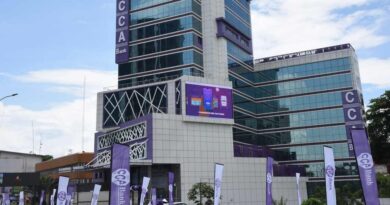Zambia Sets Sights on 3 Million Annual Tourists by 2026
Zambia is on a mission to revolutionize its tourism sector, aiming to attract an impressive 3 million visitors each year by 2026. The focal points of this ambitious goal are centered on enhancing infrastructure and making strategic investments.
Renowned Economic analyst Mr. Kelvin Chisanga highlights the crucial role of airports in guiding the tourism sector toward a positive path.
He anticipates significant economic benefits that will extend beyond tourism, positively impacting various key sectors within the local economy.
Mr. Chisanga estimates that a well-aligned tourism sector could contribute approximately K1 billion to Zambia’s total GDP profile, making it a vital player in national economic growth alongside sectors such as agriculture, mining, telecommunications, transport, manufacturing, and banking.
Highlighting the untapped potential in various regions, he advocates for the exploration of Zambia’s tourism gems, particularly in the northern circuit, northwestern, and western provinces.
These areas boast cultural-rich and historically significant sites that could serve as major attractions, creating memorable experiences for tourists.
The Zambian government, in collaboration with key stakeholders, has secured a significant investment of 100 million US Dollars to develop the country’s tourism industry.
This injection of funds is anticipated to spark positive changes and aid in the industry’s recovery post-COVID-19, considering the severe impact it faced during the active periods of the pandemic in 2020 and 2021.
Mr. Chisanga emphasizes the need for policy incentives, lauding the government’s proactive approach, and calls for industry players to offer innovative and creative tourism packages. Value addition is identified as a key element for the industry’s sustained growth.
With an increased budget allocated to tourism marketing, the sector is poised to become a crucial contributor to mental health and stress relief, promoting leisure and encouraging local participation.
Competitive pricing for locally based tourists is envisioned as an incentive to boost demand within the domestic market.
Mr. Chisanga suggests that both local companies and multinational corporations operating in Zambia should allocate budget plans for entertainment and tourism adventures.
This approach, he believes, will not only contribute to the growth of the sector but also foster teamwork and development among workers.
As Zambia sets its sights on becoming a premier tourist destination in Africa, the nation anticipates reaping the economic benefits while showcasing its rich cultural and historical heritage to the world.
The ambitious plan aligns with the broader goal of positioning tourism as a key driver of economic growth and development in the country.



